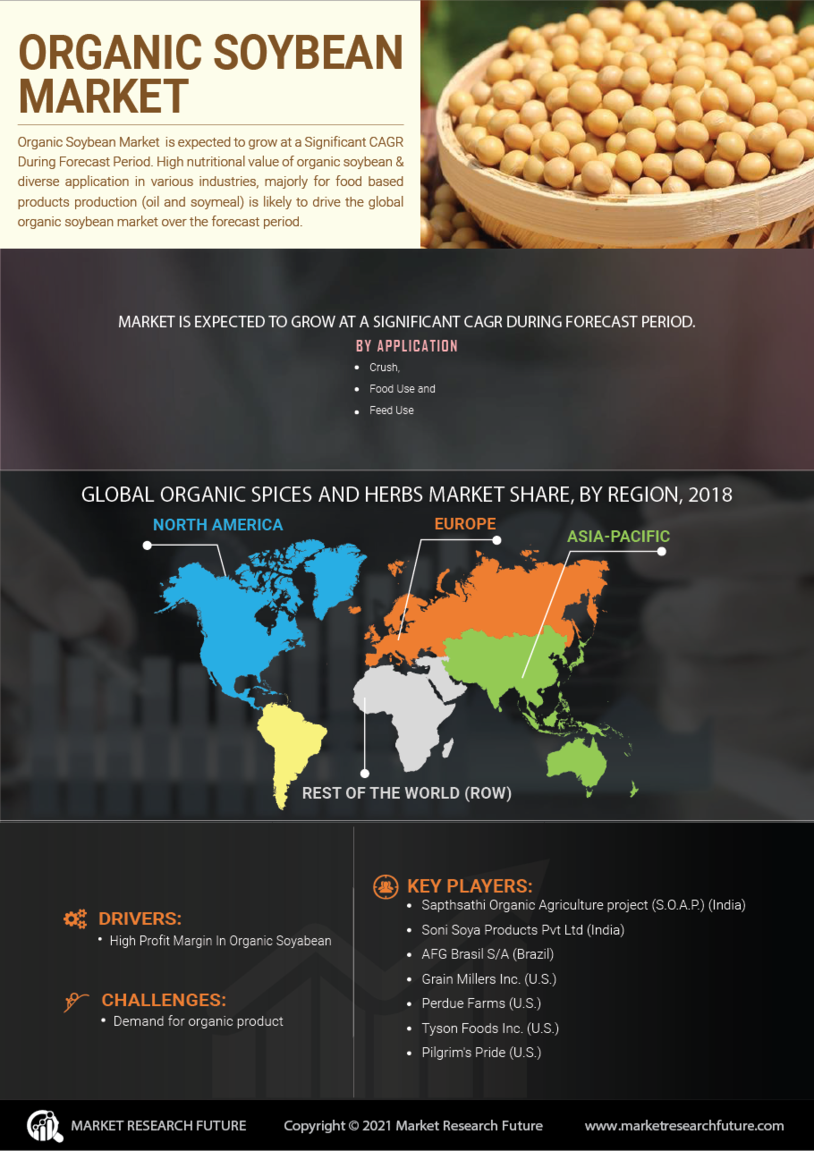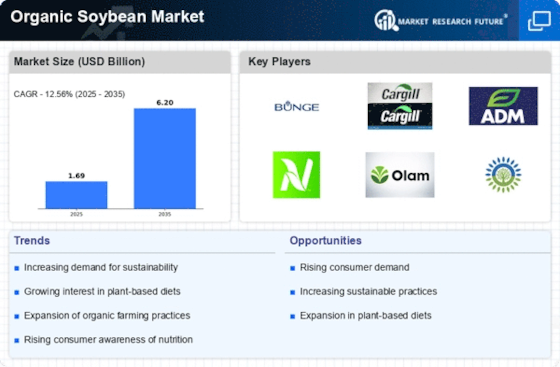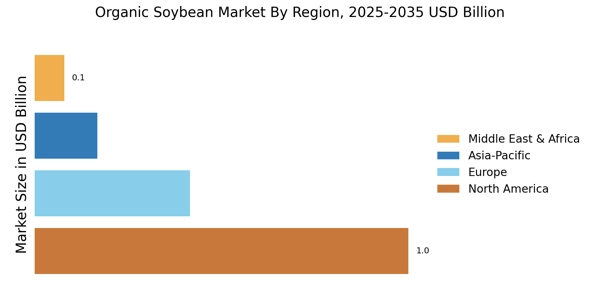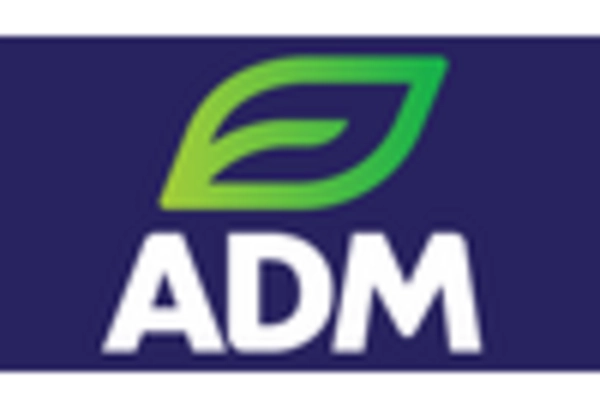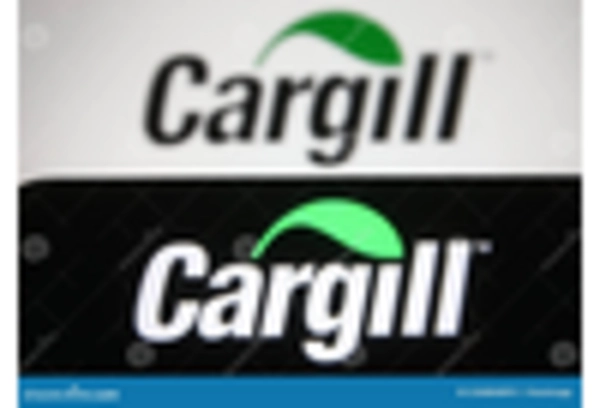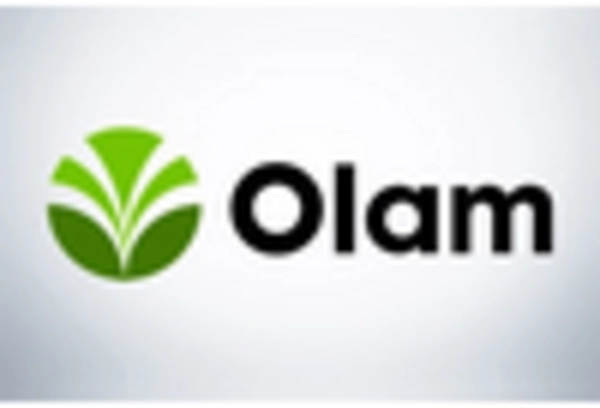Consumer Health Awareness
The increasing awareness of health and wellness among consumers appears to be a pivotal driver for the Organic Soybean Market. As individuals become more conscious of their dietary choices, the demand for organic products, including soybeans, has surged. Reports indicate that organic food sales have seen a steady rise, with the organic soybean segment contributing significantly to this growth. This trend is likely fueled by the perception that organic soybeans are healthier and free from harmful pesticides and chemicals. Consequently, consumers are gravitating towards organic soy products, which are often associated with better nutritional profiles. This heightened health consciousness is expected to continue influencing purchasing decisions, thereby propelling the Organic Soybean Market forward.
Environmental Sustainability Concerns
Concerns regarding environmental sustainability are increasingly influencing consumer choices, thereby impacting the Organic Soybean Market. As awareness of climate change and ecological degradation grows, consumers are more inclined to support sustainable agricultural practices. Organic soybeans, which are cultivated without synthetic fertilizers and pesticides, are perceived as a more environmentally friendly option. This perception is likely to drive demand for organic soy products, as consumers seek to minimize their ecological footprint. Additionally, the Organic Soybean Market may benefit from initiatives aimed at promoting sustainable farming practices, as these align with the values of environmentally conscious consumers.
Regulatory Support for Organic Farming
Regulatory frameworks that support organic farming practices are likely to bolster the Organic Soybean Market. Various governments have implemented policies aimed at promoting organic agriculture, which includes financial incentives, subsidies, and certification programs. These initiatives not only encourage farmers to transition to organic methods but also enhance consumer trust in organic products. For instance, the establishment of stringent organic certification standards ensures that consumers receive high-quality products. As a result, the Organic Soybean Market may experience increased production levels and a broader consumer base, as more farmers adopt organic practices in response to favorable regulations.
Growing Vegan and Vegetarian Populations
The rise in vegan and vegetarian populations is likely to serve as a catalyst for the Organic Soybean Market. As more individuals adopt plant-based diets for ethical, environmental, or health reasons, the demand for organic soy products is expected to escalate. Soybeans are a primary source of plant-based protein, making them an essential component of many vegan and vegetarian diets. Market data suggests that the plant-based food sector is experiencing rapid growth, with organic soy products playing a crucial role in this trend. This shift in dietary preferences may lead to increased sales and a broader acceptance of organic soybeans, further solidifying their position in the market.
Technological Advancements in Agriculture
Technological innovations in agriculture are poised to transform the Organic Soybean Market. Advances in precision farming, biotechnology, and sustainable agricultural practices are enabling farmers to enhance yields while maintaining organic standards. For example, the use of data analytics and smart farming techniques allows for more efficient resource management, which can lead to higher productivity in organic soybean cultivation. Furthermore, these technologies may help mitigate challenges such as pest management and soil health, which are critical for organic farming. As these advancements become more widespread, they could significantly impact the Organic Soybean Market by increasing supply and improving the overall quality of organic soybeans.
